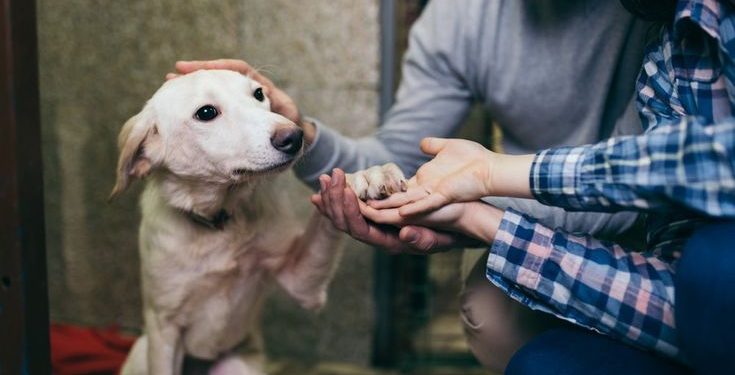Jakarta, Indonesia Sentinel — Widely regarded as “man’s best friend,” the complex relationship between dogs and humans continues to raise intriguing questions. Researchers at Kyoto University in Japan have discovered that dogs can judge and assess human competence, with female dogs have better ability than the male.
The study, titled “Female Dogs Evaluate Levels of Competence in Humans,” offers new insights into the cognitive abilities of dogs and their social evaluation skills. According to BBC, the experiment involved 74 pet dogs of various breeds observing two group of people attempting to open an empty container.
During the test, one group successfully opened the container and quickly revealed its empty contents, while the other repeatedly failed and eventually gave up. After that, the dogs were shown the same two group of people, now both held treats.
When given the choice, the dogs consistently approached the group who previously demonstrated competence opening container. The findings suggest that dogs can recognize and respond to varying levels of human skill, particularly when food is involved.
The researchers concluded, “This result suggests that dogs can recognize different competence levels in humans, and that this ability influences their behavior.”
Lynette A. Hart, Professor of Anthrozoology and Animal Behavior at the University of California, Davis, expressed little surprise at the results. “Dogs are often highly attentive to humans, so I think this result is to be expected, and it is good to see the clear evidence. It is a good first start,” she said.
How and Why Dogs Judge Humans
The study aligns with observations in other socially intelligent animals, such as dolphins, ravens, and chimpanzees, which also assess the competence of peers. According to Pupford, while dogs do not possess the same level of reasoning as humans, they excel at interpreting emotional cues, facial expressions, tone of voice, and body language.
This ability to read human emotions is believed to have evolved through thousands of years of domestication and close interaction with humans. Over time, dogs have developed heightened sensitivity to humans behavior, allowing them to anticipate needs and respond effectively.
Nonverbal communication, such as body language and vocal tone, plays a significant role in the relationship between humans and dogs. Research suggests dogs often respond more accurately to nonverbal cues than spoken words, highlighting their sensitivity to subtle signals.
Regardless of whether dogs judge human based on the human emotions or simply responding to human emotional cues, one thing is clear that emotions play an important role in the human-dog relationship. As each dog is unique, but they all share a remarkable capacity for understanding and connection, making them invaluable partners in human lives.
List of Species That Went Extinct in the Last Decade, Highlight Conservations Urgency
Therefore, socialization plays a key role in shaping this behavior. Well-socialized dogs, exposed to diverse experiences and people from an early age, are more likely to form positive interactions with humans. In contrast, dogs that lack proper socialization may display fear or aggression toward strangers.
Human-Dogs Relationship
The study highlights the depth of the human-dog relationship and emphasizes the importance of providing dogs with proper enrichment, training, and socialization. Dogs are not just passive observers in human lives—they are active participants who notice, assess, and respond to our actions.
Ultimately, the research serves as a reminder that dogs are highly perceptive creatures, capable to judge human actions and making decisions based on their observations. For dog owners, this is yet another reason to treat their canine companions with care, respect, and above all competence.
(Raidi/Agung)

























